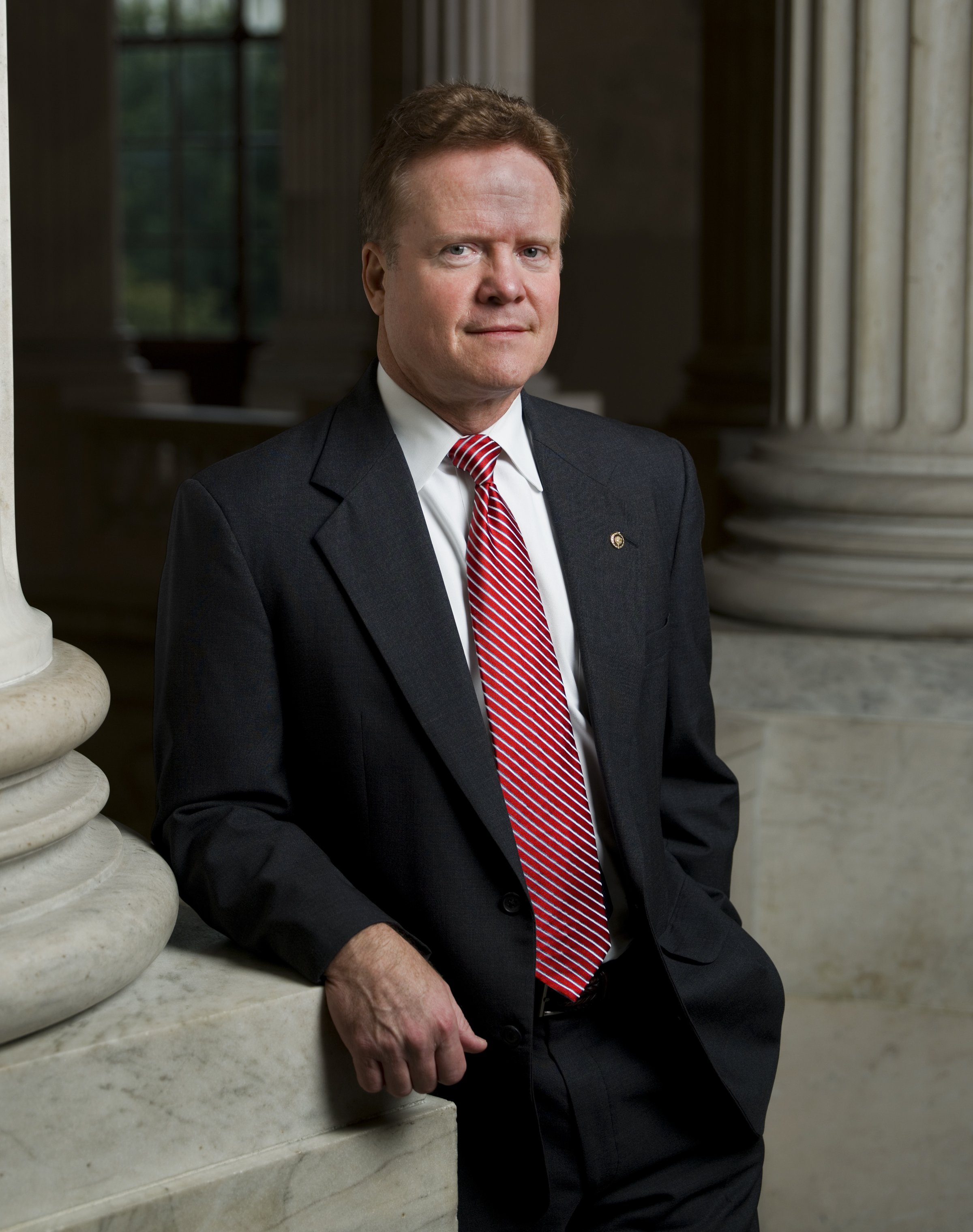 It all seemed so right for the Democratic ticket: Barack Obama, the junior senator from Illinois, change agent of the 2008 presidential race, paired with James Webb, the passionate Virginia senator whose bona fides on war and national security seemingly dovetailed with Obama’s domestic focus.
It all seemed so right for the Democratic ticket: Barack Obama, the junior senator from Illinois, change agent of the 2008 presidential race, paired with James Webb, the passionate Virginia senator whose bona fides on war and national security seemingly dovetailed with Obama’s domestic focus.That combination — one the ‘Vox thought enough of to predict would be a lock for the general election — is apparently not to be. Webb took himself formally out of consideration Monday, in language direct and emphatic enough to suggest his rejection is more than the ritual dance of presidential politics.
“Last week I communicated to Senator Obama and his presidential campaign my firm intention to remain in the United States Senate, where I believe I am best equipped to serve the people of Virginia and this country. Under no circumstances will I be a candidate for Vice President,” Webb said in a statement released Monday.
◊ ◊ ◊
There could be any number of reasons. The first, of course, was included in the statement: “A year and a half ago, the people of Virginia honored me with election to the U.S. Senate. I entered elective politics because of my commitment to strengthen America's national security posture, to promote economic fairness, and to increase government accountability. I have worked hard to deliver upon that commitment, and I am convinced that my efforts and talents toward those ends are best served in the Senate.”
The generalities of that explanation aren’t especially singular to Webb; every politician commits to strong defense, economic prosperity and good government. Drilling down, Marc Ambinder at The Atlantic reported, from a Democratic source, that “… Webb did not want to relive the vigors of a campaign so soon after his election to the Senate.”
Or was it the little matter of offshore drilling? The Hill reported June 19 that Webb was split from Obama over the issue, with Webb supporting natural-gas exploration off the coast of Virginia, and attaching his name to a bill by Republican Sen. John Warner.
“Webb’s proposal, unveiled Wednesday with John Warner, would allow Virginia to request a federal waiver to drill for natural gas at least 50 miles from the coastline on an exploration-only basis. A second waiver would be needed if gas is found, and any revenues would be split between state and federal coffers,” The Hill reported.
◊ ◊ ◊
For Obama, Webb’s opt-out has negatives and dividends. Obama loses the undeniable gravitas his campaign needs on the national security front, as well as a published historical intellect that matches his own. But he gains freedom from the distractions of Webb’s sometimes abrasive, exuberant temperament and shoot-from-the-hip style — a sharp contrast with the more methodical Obama campaign ethos.
Obama may yet benefit from Webb on the stump. From the Webb statement:
That should give heart to Democrats who eye Virginia as winnable in November. The Appalachian region, and its fiercely proud Scots-Irish residents of which Webb is a descendant, is key to any Obama shift in the electoral map. The state, trending blue in recent years (Gov. Tim Kaine, another name bruited in the Veepstakes handicap, is a Democrat), is still considered susceptible to a return to its Republican voting history. Webb can help Obama here.
◊ ◊ ◊
Who’s still in play? Who isn’t? The list of remaining possibles for the Obama ticket — and that just means the list we know about — is still impressive. Sen. Joe Biden of Delaware, another prospect with foreign policy cred and long standing on Capitol Hill, may be at or near the top now. Sam Nunn of Georgia, a former chairman of the Senate Armed Services Committee, would lend the ticket the weight of past Washington experience (even though something about Nunn feels mysteriously Cheneyesque).
 Former Sen. Chuck Hagel of Nebraska could put the Rocky Mountain West in play; his consistent anti-war stance would play well with Democratic party activists, and Hagel's being a Republican gives strength to Obama's reach-across-the-aisle style of politics.
Former Sen. Chuck Hagel of Nebraska could put the Rocky Mountain West in play; his consistent anti-war stance would play well with Democratic party activists, and Hagel's being a Republican gives strength to Obama's reach-across-the-aisle style of politics.Wesley Clark, former NATO supreme allied commander and aspirant for the presidency in 2004, gives Obama definite national security credentials, although he may have damaged his prospects with his recent comments dismissing McCain's military experience — comments that Obama, in a mastery of understatement, called "inartful." And former North Carolina senator John Edwards can't be overlooked as both a geographical balance for the ticket and a bid to break up the GOP's ostensibly solid South.
Obama-Webb is still a worldbeater, but we won't propose another Democratic ticket for 2008. We've seen just about everything happen this election year already, and there's still three-odd months before the fall classic. For now, though, despite the myriad advantages of that pairing, the Webb browser is off.
For now.
-----
Image credits: Webb: Public domain. Virginia sign: Public domain. Edwards: Mike Murphy, republished under GNU Free Documentation license.
-----
'Vox update: The Politico's David Paul Kuhn reported Saturday that Wesley Clark was taking a break from presidential politics. An aide told Kuhn that Clark is “moving on,” and can now “devote his time to the business affairs which pay the bills.”






No comments:
Post a Comment